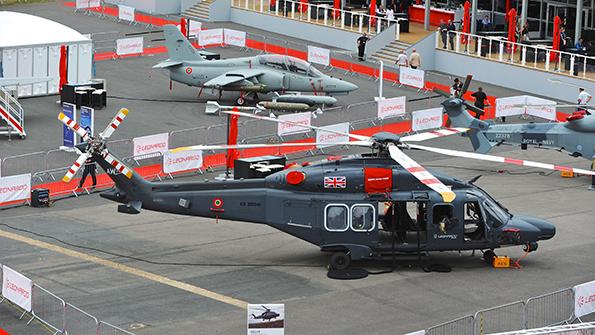
Leonardo has emphasized its historic UK ties to secure the UK Defense Ministry helicopter order.
Credit: Michael Preston/Alamy Stock Photo
When the UK launched a high-profile helicopter modernization effort more than two years ago, it expected as many as five bidders to battle for the contract. The Defense Ministry has ended up with one. Airbus and Lockheed Martin have pulled the plug on their efforts to supply the UK with a new fleet...
Leonardo Remains Only Bidder For UK Medium Helicopter Program is available to both Aviation Week & Space Technology and AWIN subscribers.
Subscribe now to read this content, plus receive critical analysis into emerging trends, technological advancements, operational best practices and continuous updates to policy, requirements and budgets.
Already a subscriber to AW&ST or AWIN? Log in with your existing email and password.





